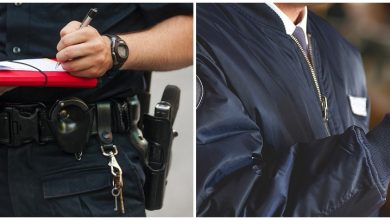How to Successfully Apply for a Liquor License: A Comprehensive Guide

Key Takeaways:
- Understanding the types and requirements of liquor licenses.
- Step-by-step guidance on the liquor license application process.
- Common challenges and tips for overcoming them.
- The importance of compliance and maintaining your liquor license.
Table of Contents:
- Types of Liquor Licenses
- Steps to Apply for a Liquor License
- Understanding the Requirements
- Common Challenges and Tips
- Importance of Compliance
- Maintaining Your Liquor License
Types of Liquor Licenses
Liquor licenses come in various types, tailored to different business needs. They are primarily divided into two main categories: on-premise and off-premise licenses. On-premise permits are essential for establishments where alcohol is consumed on-site, such as bars, restaurants, and nightclubs. These licenses come with specific requirements and stipulations regarding the service, type, and hours of alcohol sales. In contrast, off-premise licenses cater to businesses that sell alcohol for consumption elsewhere, such as liquor stores, grocery stores, and certain specialty shops.
Understanding the distinctions between these licenses is essential to ensure you apply for the correct one suited to your business requirements. For instance, if your business is located in Texas and you want to learn how to get an alcohol permit in Dallas TX, recognizing these differences will guide you in the right direction, helping you choose the appropriate license type from the start.
It’s also worth noting that some licenses are specifically tailored to the type of alcoholic beverage sold, such as beer, wine, or spirits. Different states may have unique categories for these beverages, influenced by local regulations. Therefore, researching your area’s specific criteria and restrictions is vital for a smooth application process.
Steps to Apply for a Liquor License
- Research local and state regulations: Begin by understanding the local and state laws governing the sale of alcohol in your area. Each jurisdiction has its own set of rules, which can vary significantly. Some regions have more stringent requirements, while others might be more lenient. Gathering this information beforehand will help you navigate the process more efficiently.
- Prepare your business documentation: Documentation is critical to the application process. Ensure you have all necessary documents, such as your business license, tax identification number, incorporation papers, and other relevant paperwork. Proper preparation will save time and provide a clear path for your application.
- Submit the application and fees: Every liquor license application requires a fee, which can vary depending on the license type and location. Prepare yourself for this to avoid any financial surprises. Submit your application and fees to the relevant local or state authority. Double-check the application for completeness to avoid delays.
- Pass the inspection and interview process: Local authorities often conduct thorough inspections to ensure health and safety regulations compliance. They may also interview applicants to gauge their understanding of the responsibilities associated with selling alcohol. Being well-prepared and ensuring your premises meet all required standards can significantly enhance your chances of approval.
- Receive your liquor license and display it prominently. You will receive it once approved. It is important to display this license prominently at your place of business where customers and regulatory officials can easily view it. This not only shows compliance but also builds trust with your patrons.
Understanding the Requirements
Each state and locality may have specific requirements for obtaining a liquor license. These requirements range from zoning laws and background checks to community approvals and public notification procedures. Being well-informed about these prerequisites will streamline your application process and prevent potential roadblocks.
Some states require applicants to post a public notice of their intention to sell alcohol, allowing community members to voice concerns. This public notification is a critical step that can significantly impact your application if not handled properly. Additionally, many states enforce mandatory waiting periods during which various regulatory bodies review your application. This review process can take weeks or even months, depending on the locality.
This informative guide provides more detailed information on state-specific requirements and how they might impact your business.
Common Challenges and Tips
Many applicants face common challenges when applying for a liquor license. These include stringent zoning laws that might restrict where alcohol can be sold, lengthy approval processes that can delay business operations, and even community opposition to issuing new liquor licenses in certain areas.
Zoning laws might necessitate costly changes to your planned business location or even force you to relocate entirely. To overcome this, consult with local zoning authorities early in the planning stages to understand the feasibility of your location. Similarly, the approval process can be lengthy and complicated, involving multiple government departments. Patience and thorough preparation can help mitigate these delays.
Community opposition is another significant challenge. Public hearings often form part of the application process, where community members can raise concerns. Building positive relationships with local community groups and understanding their viewpoints can alleviate opposition and garner support for your application.
Importance of Compliance
Compliance with local and state regulations is crucial during the application process and maintaining your liquor license over the long term. Failure to adhere to these regulations can result in hefty fines, legal penalties, or even the revocation of your license.
It is essential to regularly review updates to local laws and ensure your business practices align with these changes. Another critical compliance aspect is keeping detailed and accurate records of all alcohol-related transactions. This helps maintain transparency and prove adherence during inspections or audits.
Additionally, training your staff about responsible alcohol service and regulatory compliance can prevent common pitfalls. Providing regular training sessions helps keep your team informed about best practices and legal obligations, fostering a culture of compliance within your organization.
Maintaining Your Liquor License
Once you have obtained your liquor license, it is crucial to maintain it by adhering to all applicable laws and regulations. Periodic renewals and staying updated with legal changes form a significant part of this maintenance process. Renewal procedures often involve submitting updated information about your business, including any changes in ownership, and paying the necessary renewal fees.
Regular compliance checks and internal audits can ensure that all procedures are correctly followed. Implementing staff training programs focused on responsible alcohol service is another effective strategy. These programs help with compliance and promote a safe and enjoyable environment for your patrons.
In addition to regular renewals, staying proactive about regulatory updates is vital. Law changes can affect how you operate, and being caught off guard can result in non-compliance issues. Therefore, subscribing to updates from local regulatory bodies and consulting with legal experts periodically can be beneficial.





